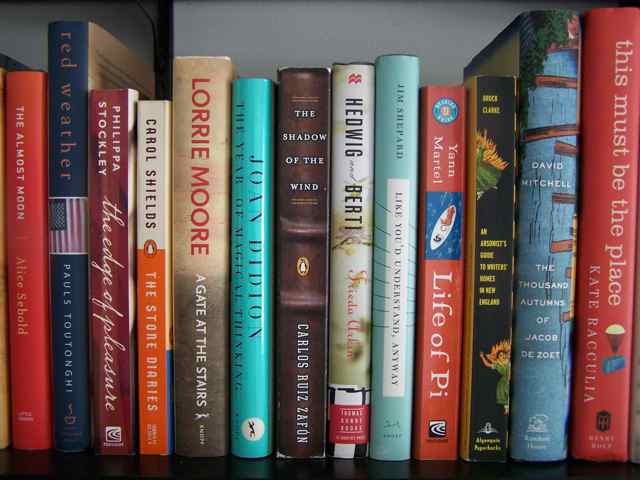 Like a magic trick, Vaclav & Lena, a first novel by Brooklyn author Haley Tanner, is quietly dramatic and deceptively simple — satisfying the human craving for the mysterious and the straightforward at the same time. A best-book-of-the-year review from Hey Lady! got me to read this book despite its bland title and even blander cover, and I’m glad I did. Books about magicians are big right now, but this novel is determinedly down-to-earth, non-fantastical, a realist’s romance, a love story with the illusion of disillusion. There’s a touch of fable in the author’s writing style, but the only magic is Houdini-esque, not Potter-esque.
Like a magic trick, Vaclav & Lena, a first novel by Brooklyn author Haley Tanner, is quietly dramatic and deceptively simple — satisfying the human craving for the mysterious and the straightforward at the same time. A best-book-of-the-year review from Hey Lady! got me to read this book despite its bland title and even blander cover, and I’m glad I did. Books about magicians are big right now, but this novel is determinedly down-to-earth, non-fantastical, a realist’s romance, a love story with the illusion of disillusion. There’s a touch of fable in the author’s writing style, but the only magic is Houdini-esque, not Potter-esque.
As young children, Vaclav, a child of Russian-immigrant parents and Lena, who entered school speaking no English, become friends by default. Vaclav is shy and a bit strange, with his magic tricks and obsession with Harry Houdini; little Lena is quiet, still more comfortable speaking Russian over English. Vaclav’s workhorse of a mother, Rasia, who singlehandedly wrested her husband and son out of Russia for a better life, sees that, in America, Vaclav is going to need a friend and that parent-less Lena needs rescue.
For Lena, it’s a relief and an escape for Lena to visit Vaclav’s family after school every day. For Vaclav, it’s settled: when they grow up, Vaclav will be a famous magician and Lena will be his beautiful assistant. Knowing she is necessary to the act, Lena occasionally resents her secondary status, but Vaclav’s better command of English gives him power over the list-making and plans. For Rasia, it’s a worry every time she has to bring Lena home where she is neglected by an aunt.
This is how it is until adolescence when everything changes; the children are separated. The story skips over a gap of years and resumes when Vaclav and Lena are seventeen years old, moving along faster after the halfway point. Everyone’s English skills have improved, but the ability to communicate feelings to one another hasn’t much. Painful secrets are too hard to discuss, whether in Russian or in English.
The novel touches frequently on assimilation (which Rasia wants for Vaclav), and the author has said in interviews that the experience of immigration is part of being American already, but Vaclav & Lena isn’t intended to be a detailed portrayal of the Russian immigrant experience in Brooklyn. (For novels about the immigrant experience, go with Jhumpa Lahiri or one of the many other novelists listed on this list from Cornell University, for example.) Love — romantic and maternal — is the central theme in this story. Some reviewers have complained that the Russian-American characters are either too stereotyped or too atypical. Others have pointed out that Vaclav is a Czech name and that Vaclav’s mother’s name should be “Raisa” not “Rasia”, but these are minor flaws that can be forgiven in a first novel.
Vaclav & Lena is recommended for readers looking for a contemporary love story or family story, not a novel about the Russian-American immigrant experience. It is sweet — in many ways unbelievable — but it is a touching story that sheer grit (especially in the characters of Rasia and Lena’s aunt) keeps from veering into sentimentality.
Read The New York Times review of Vaclav & Lena.
Other opinions about Vaclav & Lena:
Hey Lady!
The Indextrious Reader
That’s What She Read
